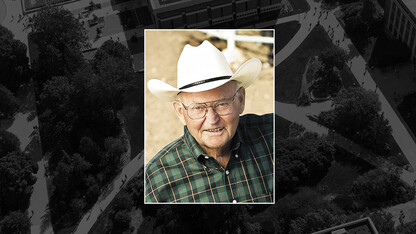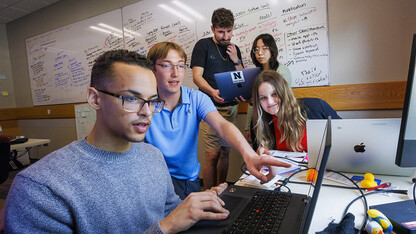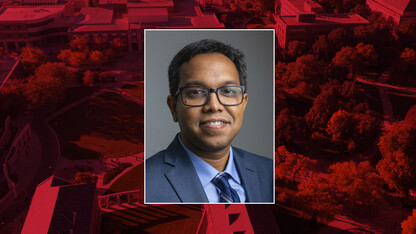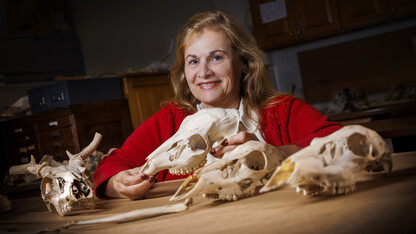· 5 min read
UNL alumna traversing globe as CDC disease detective
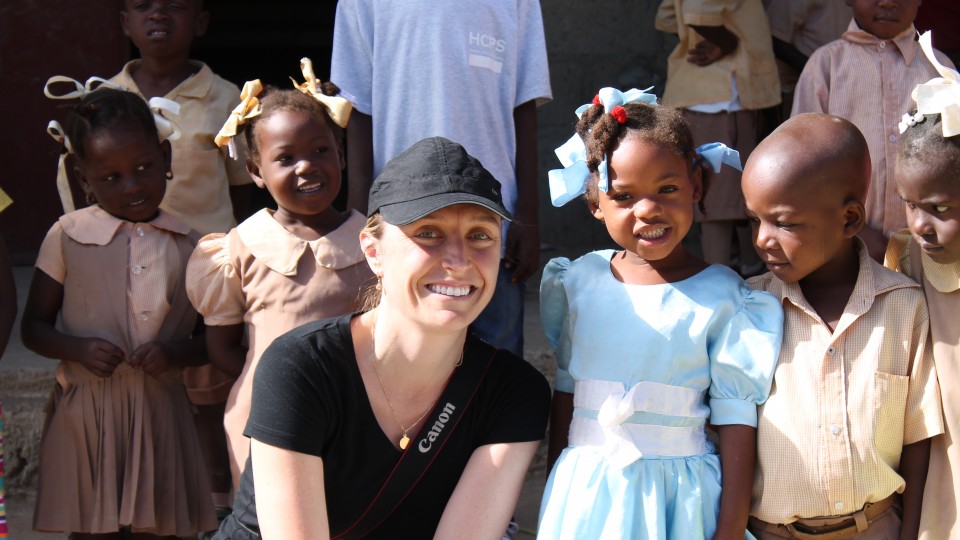
Where in the world is Alaine Knipes?
Over the past several years, the UNL alumna has found herself in a series of far-flung locales ranging from the Amazon rainforest and sub-Saharan Africa to South Asia and the Caribbean.
And given her newest appointment with the Centers for Disease Control and Prevention, Knipes is likely just getting started.
In July, Knipes earned a two-year placement with the CDC’s elite Epidemic Intelligence Service. The program’s officers, better known as disease detectives, annually investigate more than 100 outbreaks and public health emergencies around the world.
Disease detectives remain on call 24/7, often arriving first on the scene of an epidemic. Once there, they work with local partners to identify the cause and implement measures designed to prevent an outbreak from spreading. In 2014, CDC investigators hit the ground in West Africa less than a week after the first reported case of the Ebola virus.
“It’s an opportunity to improve the lives of many, rather than one patient at a time,” said Knipes, who earned her doctorate in parasitology from UNL in 2010. “I’ll be on the front lines of domestic and international health threats, helping the agency rapidly detect and respond to urgent health issues.”
Knipes recently returned from the Democratic Republic of the Congo, where she was evaluating the reproductive health component of a national surveillance system. Now analyzing that data back at CDC headquarters in Atlanta, Knipes knows she could be called into action almost anywhere in the world at a moment’s notice.
Whenever the call does come, Knipes can rely on lessons learned during her three-year stint as a guest researcher with the CDC – an experience that included work in Haiti, India and Burkina Faso. She spent part of that time working to control and eliminate neglected tropical diseases, a broad class of contagious illnesses that strike more than one billion people who typically live in poverty.
“Since coming to the CDC, I’ve gained a deeper understanding and appreciation of what it means to pursue a career in public health,” Knipes said. “In the future, I want to continue working in (this area) with the CDC.”
Yet Knipes said she hadn’t really considered a career with the agency until she heard that it was seeking someone with a very specific background: a French speaker who knew parasites and had spent time in Africa.
Knipes had grown proficient in French while an undergraduate in her native Massachusetts. She had studied the ecology of minnow-hosted parasites while writing her dissertation at UNL. And she had spent two years in Zambia on a postdoctoral fellowship provided by the Nebraska Center for Virology.
She decided to apply. When she got to CDC headquarters, Knipes knew she had made the right decision.
“After arriving in Atlanta, I quickly discovered that it was exactly where I was meant to be,” she said. “I’m surrounded by intelligent, conscientious people who are committed to making the world a better, safer and healthier place.”
East meets Midwest
Long before she found an unforeseen fit at the CDC, Knipes did the same at UNL.
While working toward degrees in French and biology at the University of Massachusetts Amherst, Knipes took two courses that touched on the role of parasites in the animal kingdom. Fascinated by their diversity and complexity, she began reading the Journal of Parasitology – and noticed that many of its most intriguing papers were coming from UNL’s parasitology program.
Knipes reached out to John Janovy, now a professor emeritus of biological sciences. Then in the midst of his 45-year career at UNL, Janovy quickly made an impression.
“He was a very conscientious individual with very diverse interests in the sciences, as well as the arts and humanities,” Knipes said. “He was exactly the type of person I was looking for in a mentor and doctoral supervisor.”
Their conversations, along with a subsequent visit to Lincoln, convinced Knipes that UNL was where she wanted to pursue a doctorate.
“It was my first trip to Nebraska and first time in the Midwest,” Knipes said. “Lincoln was freezing cold but I loved the campus … and had a really great visit to Dr. Janovy’s lab.”
Knipes spent the next six years conducting research in Lincoln and serving as a teaching assistant at Cedar Point Biological Station, a UNL field site in western Nebraska that Janovy helped establish in the late 1970s.
Knipes credited the program with providing the experiences, and her adviser with offering the guidance, that have allowed her to take on global health responsibilities with the CDC.
“UNL’s training in parasitology has enabled me to develop an understanding of, and the ability to anticipate, the complex biology of infectious disease, which has been key to my successes in operational research at the CDC,” Knipes said.
Janovy said the same qualities that propelled Knipes to success at UNL have continued to do so as she works her way around the globe.
“She was one of the most determined young people I’ve ever met. No matter what the challenge, she relished it,” he said, noting that she qualified for the Boston Marathon three times while at UNL.
“She was also completely poised and dignified, no matter what the situation. I believe that trait (has) helped her in her contacts with the great diversity of people (she’s encountered) after her graduation.”
Though thousands of miles often separate the mentor and his last doctoral advisee, the two have remained in touch. Since leaving Lincoln, Knipes has even Skyped into a UNL Honors seminar on tropical disease and global health issues that Janovy continues to teach.
“I brag about her all the time,” he said. “I’m not the least bit surprised by her success.”



